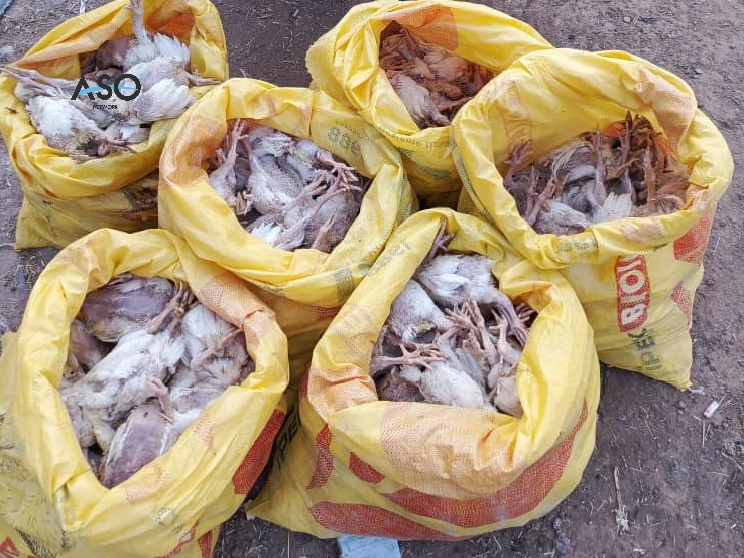News
The spread of Newcastle disease causes major losses to poultry in North-East Syria

The regions of North-East Syria, such as Girke Lake/Ma’bada, Derik/Al-Malikiyah, Al-Yarubiyah countryside/Tel Kochar, Jal Agha/Al-Jawadiyah, and Tirbe Spiyeh/Al-Qahtaniyah, are witnessing a major spread of Newcastle disease, known locally as “Abu Arif,” which has led to the death of thousands of poultry in poultry farms, while Its spread in Mansoura was limited to domestic chickens, with no infections recorded in poultry farms.
Dr. Haitham Ahmed, a veterinarian, confirmed to ASO News Network that the number of dead chickens in Girke Laki/Ma’bada reached 8,000 out of 12,000 birds, and in Derik/Al-Malikiyah it reached 500 out of 5,000. As for the countryside of Tel Kochar/Al-Yarubiyah, 2,500 chickens died out of 4000.
In the southern countryside of Tirbe Spiyeh/Al-Qahtaniyah, Abu Omar, the owner of a poultry farm, lost 2,000 birds in 10 days, estimating his loss at 3,000 US dollars (approximately 45 million Syrian pounds).
As for Abu Rudy from Jal Agha/Al-Jawadiyah countryside, all of the chicks he owned died, causing him a loss amounting to $2,000 (nearly 30 million Syrian pounds), which included the fee for the poultry house and the costs of feed and medicine.
In the city of Mansoura, infections were limited to domestic poultry, where veterinarians confirmed to ASO Network that the mortality rate reached 70%.
Anwar Al-Faraj, a resident of the city, told Aso that he lost 20 chickens out of 35 that he raises in his house, and he expects the rest to die due to their infection.
Mohammad Dijwar, Director of the Livestock Office in Qamishlo/Al-Qamishli, said in a statement to ASO News Network, that there is difficulty in determining accurate numbers of deaths and infections in Al-Jazira District, but he pointed out that the disease affected all the poultry farms, which number about a thousand, with variations in Damage rates exceeded 60% in some cases.
Newcastle disease is a highly contagious viral disease transmitted between birds through air, water, contaminated feed, and breeding materials.
To prevent this disease, it is recommended to follow strict health procedures that include periodic vaccination of poultry, maintaining the cleanliness of poultry and tools, and immediately isolating infected birds to prevent the spread of infection.
The spread of Newcastle disease in the region requires a rapid response to reduce the losses incurred by breeders, and experts stress the need to improve preventive measures to ensure control of this deadly disease.
